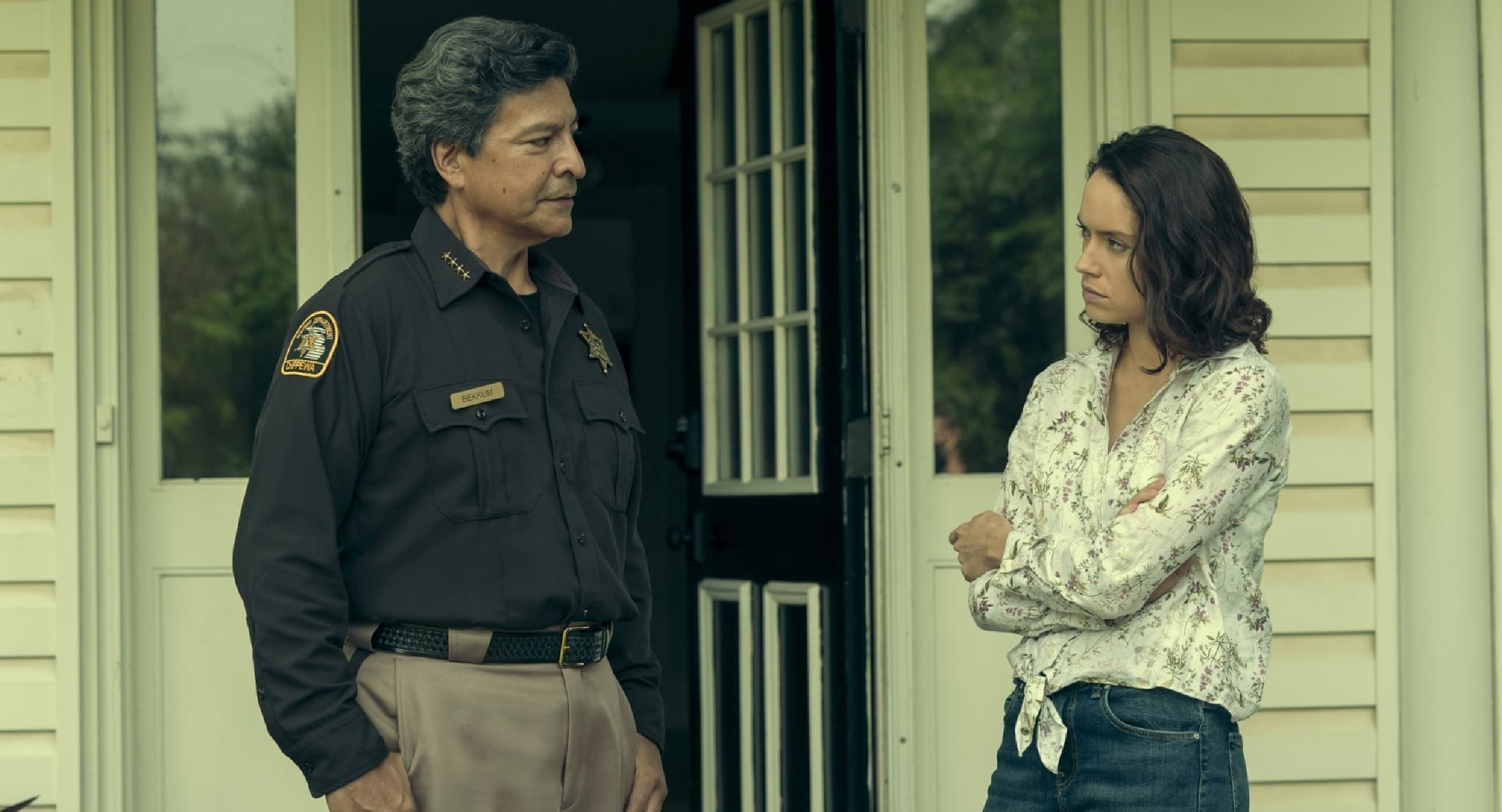The Marsh King’s Daughter – Film Review
Published November 25, 2023

Director Neil Burger‘s adaptation of Karen Dionne‘s celebrated novel The Marsh King’s Daughter unfolds in haunting slow-motion as the story of Helena Pelletier’s gripping survival ordeal plays out on screen. With a stirring performance by Daisy Ridley in the lead role and the enigmatic Ben Mendelsohn portraying her villainous father, The Marsh King’s Daughter walks a tricky line, balancing chilling psychological thrills and an unnerving tale of father-daughter relations, evoking both sympathy and disgust.
Burger, well-versed in narrating complicated stories as proven in Limitless and Divergent, helms this film with similar dexterity. However, where his previous projects aimed to astonify with grand visual spectacles, The Marsh King’s Daughter leans into the subtle horrors of psychological warfare. Capturing the frigid desolation of a wilderness imprisoning a family under twisted circumstances, the director unflinchingly uses the cinematic tools at his disposal, albeit at times losing the dramatic pulse of the story in over-detailed cinematography.
Daisy Ridley brings a muted ferocity to Helena, combining strength and vulnerability to showcase the grim effects of a tormented upbringing on her character. From tense face-offs with Mendelsohn’s Marsh King to touching scenes of familial bonds with Garrett Hedlund’s Stephen, she paints a credible picture of a traumatized yet tenacious woman navigating life.
Opposite her, Mendelsohn successfully adds to his growing list of formidable screen villains. His Marsh King is a study in casual cruelty, an unflinching antagonist whose relationship with his daughter makes the skin crawl. It’s not his most memorable role, but Mendelsohn does manage to cast a shadow that haunts Helena’s story well.
In support, Hedlund’s portrayal as Stephen Pelletier, the unsuspecting partner, does manage to hold its own, although his character often gets lost in the ominous shadow cast by the sinister Marsh King. The casting is rounded off by Brooklynn Prince and Gil Birmingham who deliver reliable performances, helping to create the eerie ambiance of the film.
Elle Smith and Mark L. Smith‘s screenplay reflects a deep understanding of the book, injecting many dialogue exchanges with high stakes and potent revelations, though sometimes, this keenness to adapt may prove the movie’s biggest folly. The story’s convoluted flashbacks, necessary as they are, disrupt the pacing and leave the viewer grasping at fragmented information at times. However, the balance between tense drama and occasional tender moments is generally well maintained.
The gloomy landscapes are framed expertly to establish the backdrop of Helena’s predicament, complimented by a simmering score that often underscores moments of high tension. The detailed nature and wilderness survival aspects incorporated within the storyline have been handled adeptly, adding depth and a unique flair to the film.
The Marsh King’s Daughter primarily rides on the central performances, especially Ridley’s deft handling of her layered role. The creeping terror and shocking revelation make for an intense viewing experience. Although occasionally held back by narrative hiccups and uneven pacing, the film captures the primal fear and chilling brutality inherent in its premise effectively.
This psychological thriller’s ending also deserves special mention as it plays out like a cat-and-mouse chase through the wintry wilderness. Though one might feel that the build-up doesn’t entirely pay off, it nonetheless creates an exciting, gripping finale.
The Marsh King’s Daughter offers an intense, layered exploration of survival and the human capacity for resilience in the face of adversity. Aided by strong performances and its engaging central mystery, it presents a captivating though flawed cinematic experience that certainly makes an impression.
